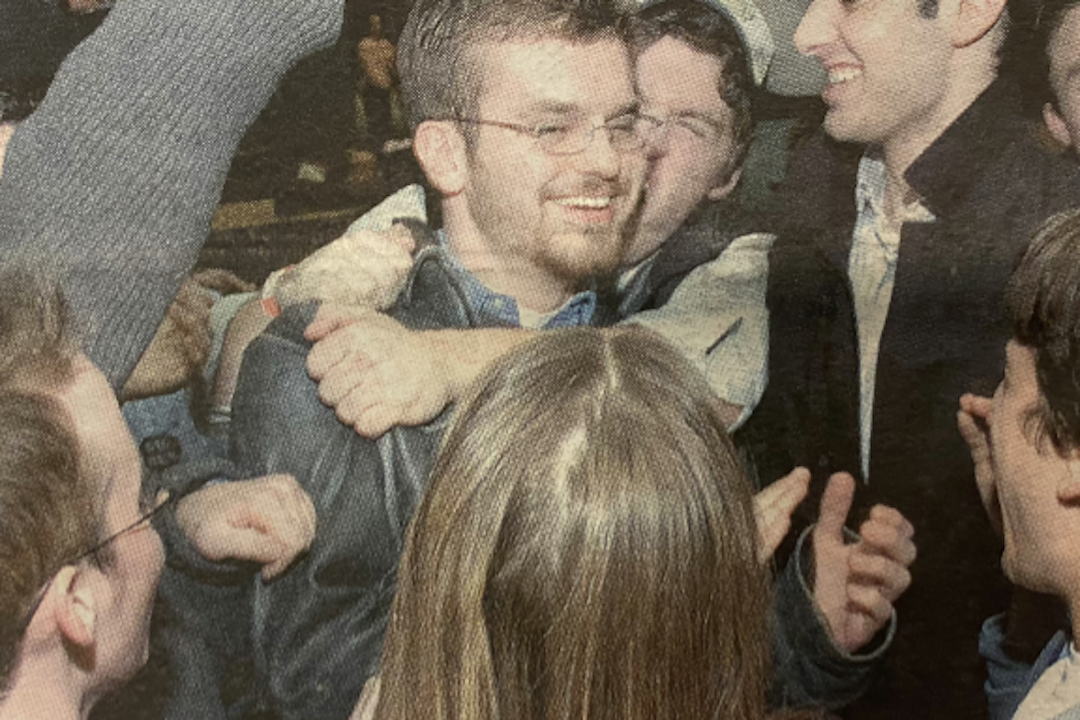History will repeat itself in Lisner Downstage this week as the 14th Grade Players depict the legendary 1977 Nixon interviews that would ultimately define a journalist’s career and further damage the reputation of an ex-president.
The dramatization, which was made into a feature film in 2008, follows the preparation and filming of the historical interviews between President Richard Nixon and journalist David Frost, where Nixon admits to unethical behavior while in the White House.
“They’re both really afraid of being forgotten and have had success in their life, but never felt they were good enough for anyone else. That informs a lot of their decisions and motivates them to do the things that they do,” director Aly Seeberger, a junior, said. “It’s really interesting to watch how everything unfolds and see how quickly the balance of power can change in an interview.”
Following the transformation of Frost, played by senior Douglas Brundage, from a talk-show host to an investigative journalist, the play provides a raw, behind-the-scenes look into the emotional interviews.
The characters’ witty banter and raw, awkward human emotions drive the play toward the climactic interview that is factually predictable, but emotionally suspenseful.
“I think I relate a lot to him actually because he is looking for legitimacy a lot. I feel like we’re always looking to be something greater than whatever we’re doing at the moment and so it’s very relatable and interesting to watch his transformation,” Brundage said.
Senior Steve Isaac, who plays Nixon, said it is has been a challenge “to walk the fine line between acting and imitation.”
“It is so easy for Nixon to become a caricature and it has been my job to make sure that that doesn’t happen,” Isaac said. “I think the political interests of the GW student body will get a lot of people in the audience who don’t generally go to student theater shows.”
While “Frost/Nixon” is Seeberger’s directorial debut, she is no stranger to the stage. A history major who has acted in eight productions since her freshman year, Seeberger used the play to look into the human element of what motivated each character’s actions.
“The thing about history is that we tend to look at facts only and move farther away from looking at the motivations behind those actions. We don’t look into the human element that went into those actions,” Seeberger said. “There are all of these thoughts and emotions that influence how everyone acted and I feel like that’s just as an important part of history as the facts are.”
Written by English playwright and screenwriter Peter Morgan, the play will open Thursday at 7 p.m.






